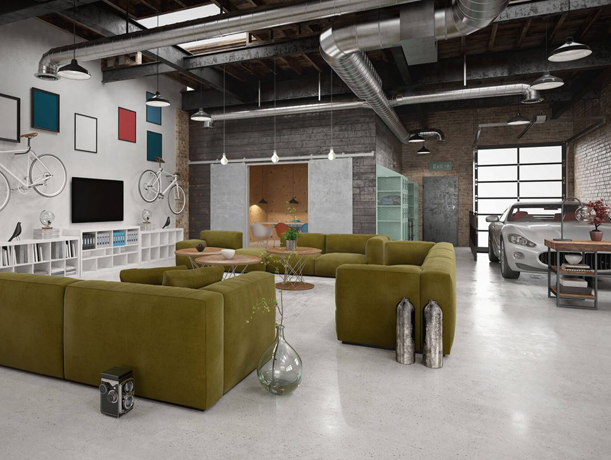Industrial sector: escorting production
In the industrial field, various factory workshops are important application places for air coolers.
Textile factory
Textile factories need to maintain certain temperature and humidity conditions to ensure the quality of yarn and the smooth progress of the textile process. Air coolers can effectively reduce workshop temperatures and avoid the impact of high temperatures on textile equipment and raw materials. For example, high temperatures may cause yarn to become brittle and increase the rate of breakage, while air coolers maintain the temperature within a suitable range, ensuring efficient and stable textile production. At the same time, its good ventilation performance can also reduce the accumulation of flying flowers and dust in the workshop, improve the working environment, and protect the respiratory health of workers.
electronics factory
Electronic factories have stricter requirements for the production environment, not only to control temperature, but also to prevent static electricity generation. The air cooler reduces the possibility of static electricity generation by adjusting the temperature and increasing air humidity. A stable temperature and humidity environment is crucial for ensuring product quality in processes such as chip manufacturing and circuit board assembly. The use of air coolers can effectively reduce the heat generated by equipment operation and personnel activities in the workshop, creating ideal conditions for the production of precision electronic equipment.
a machinery plant
In a mechanical factory, a large amount of mechanical equipment generates a large amount of heat during operation, causing the workshop temperature to rise. The powerful cooling ability of air coolers can provide workers with a comfortable working environment and improve labor efficiency. Moreover, the ventilation function of the air cooler helps to dispel the oil stains, odors, and metal dust in the workshop, ensuring the health of workers and the normal operation of mechanical equipment.
Business field: Enhancing customer experience
Commercial places have extremely high requirements for environmental comfort, and air coolers play an important role in this regard.
Shopping malls and supermarkets
Shopping malls and supermarkets are densely populated places that require a cool and comfortable shopping environment. Air coolers can provide sufficient air conditioning for large business areas without taking up too much space. Its fresh air function can also effectively reduce odors, making customers feel physically and mentally happy during the shopping process. In addition, the relatively low energy consumption of air coolers also saves operating costs for businesses.
Restaurants and internet cafes
In restaurants, air coolers can create a comfortable dining environment. Diners will not feel uncomfortable due to high temperatures while enjoying delicious food. For places like internet cafes where people stay for long periods of time, air coolers can not only lower indoor temperatures, but also increase the oxygen content in the air, alleviate customer fatigue caused by prolonged use of computers, and enhance customer satisfaction and loyalty.
In the field of agriculture: supporting the growth of animals and plants
The application of air coolers in the agricultural field is also very extensive, creating favorable conditions for agricultural production.
Greenhouse
The temperature and humidity inside the greenhouse have a crucial impact on the growth and development of crops. Air coolers can lower the temperature inside greenhouses during high temperature periods during the day, preventing excessive temperature from causing damage to crops such as burning leaves and affecting flower bud differentiation. At the same time, it can also regulate the humidity inside the greenhouse, reduce the occurrence of pests and diseases, and improve the yield and quality of crops.
farm
In breeding farms, air coolers are of great significance for the healthy growth of livestock and poultry. High temperature environments can easily lead to heat stroke, decreased feed intake, and slow growth in livestock and poultry. Air coolers can effectively reduce the temperature inside the breeding house and improve the comfort of livestock and poultry. Moreover, the ventilation function of the air cooler can reduce the concentration of harmful gases such as ammonia and hydrogen sulfide in the house, lower the incidence of respiratory diseases in livestock and poultry, and ensure the efficiency of breeding.
Family Domain: Affordable Cooling Options
The application of air coolers in households is also becoming increasingly popular.
In living rooms or bedrooms, air coolers can be used as auxiliary cooling devices. Especially in some well ventilated houses or areas where the summer is not too hot, air coolers can meet people's need for coolness. It can adjust wind speed and temperature according to different usage scenarios, with simple and convenient operation. At the same time, the air cooler has the characteristic of increasing air humidity during operation, which can improve the indoor dry environment for households in dry areas and make residents feel more comfortable.
In short, with its unique advantages, air coolers have been widely used in various fields such as industry, commerce, agriculture, and households, becoming a powerful assistant in creating cool and comfortable environments.
